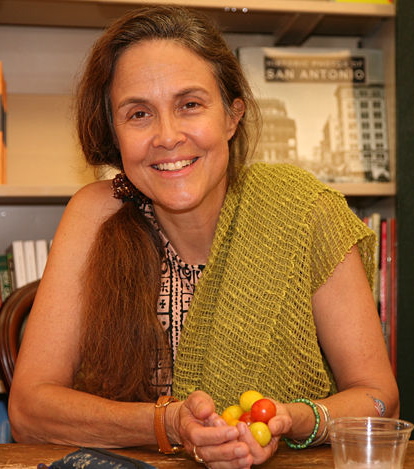When it comes to joy, we don't go through the same process. Mudita -- sympathetic or appreciative joy -- is the third of the brahma viharas, or divine abodes, following metta and karuna, or compassion, the aspiration to take away others' suffering and give them ease. It's a logical progression.
By definition, sympathetic joy means feeling joy for others. But it seems to me that it's difficult to appreciate the good fortune of others if we don't appreciate our own good fortune. If we don't know what the experience of joy feels like, how can we share in it?
For me, William Wordsworth offers the best description of the feeling of joy: My heart leaps up. There's an energetic spark, an almost palpable feeling of lightness, of opening, of expanding out. When it's ignited by someone else's good news, it's a hug or high five that happens spontaneously, without any decision to give it. It's the fans leaping to their feet when the ball goes into the net at a soccer game.
When it comes as a result of our own good fortune, especially something we've done, we often clamp down. Are we showing off? Do we seem arrogant? Selfish? Prideful? Has our self-joy turned into an over-the-top end zone dance that's out of proportion to our achievement? Are we rubbing other people's noses in it? Or do we risk losing our joy if we make it public -- if we're too happy, we fear we're jinxing ourselves and inviting unseen forces to take it away.
So it's difficult to simply be with our joy, to rest in the feeling of lightness and openness, filled to the brim with good feelings.
My friend Maura related a conversation she had with her 98-year-old cousin, Sara, in Ireland: "Sara said what bothers her the most, looking back on her life, was that most of the time she was happy she didn't realize it." That's what we need to realize.
Scientific research suggests that we actually have three times more positive experiences than negative ones, but we remember the negative ones. There may have been evolutionary reasons for that -- our ancestors who remembered which beings or conditions were threatening and took steps to avoid them were the ones who survived.
But we can change that. The first step is to notice moments of joy, bits of unadulterated OKness, that feeling of all's right with the world. And instead of panicking and trying to find the thing that wrong or backing away because it can't last, just be with it. Find it in your body -- maybe your back straightens when your heart leaps up, or the corners of your mouth rise. Maybe your shoulders sink because joy isn't tense.
 |
You don't have to explain it or justify it or hide it.It won't last -- nothing does, good or bad. But soak in it as long as it's there. Become familiar with it. Know it. It'll go away, but it'll come back. And you'll be better able to recognize it when it does. And you'll get more comfortable with it, which will let it flow more easily when others share their joy.
Because research also says that sharing joy is good. Sharing joy increases it. (Note that the study involves sharing joy with a close friend or romantic partner, who will be supportive.)
And if you hear a voice in your head whispering "selfish," consider this: Research has found that your happiness affects those around you. So far from being selfish, feeling your joy will bring joy to others -- which you can appreciate (mudita), creating the best of all possible feedback loops where everyone's joy reinforces everyone else's in the circle..




